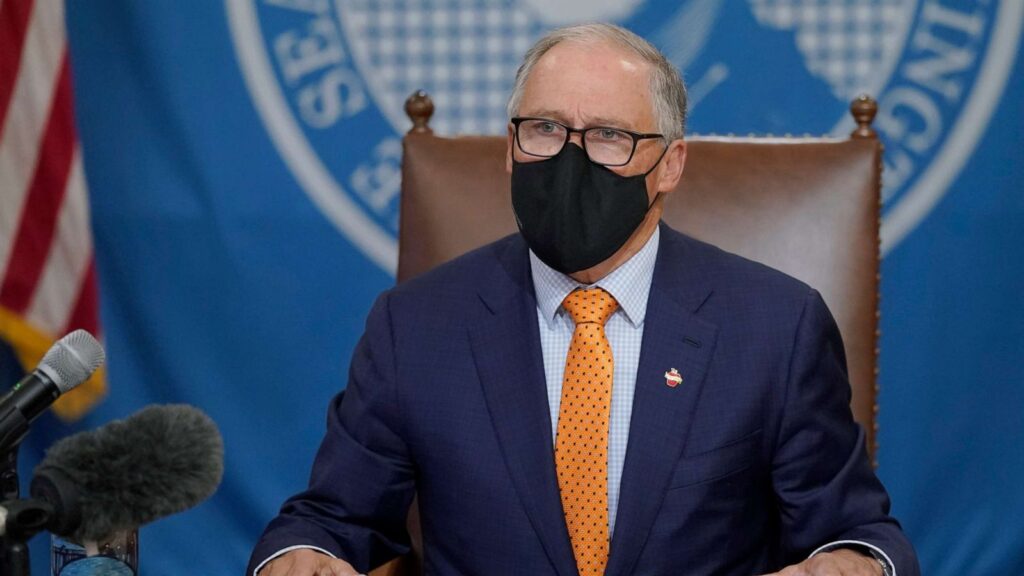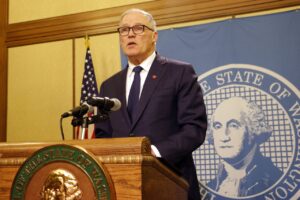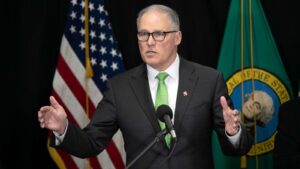Coming to Washington next year; new taxes, laws, agency; fewer straws
4 min read
From new taxes to voting rights to minimum wage, a host of new laws are to take effect in Washington state. Here’s a look at how things will change in the Evergreen State in 2022.
CAPITAL GAINS INCOME TAX
Beginning Jan. 1, the controversial capital gains income tax is set to become effective. It levies a 7% tax on capital gains above $250,000 for individuals and joint filers from the sale of assets such as stocks and bonds. Exceptions include the sale of real estate, livestock, and small family-owned businesses.
First payments aren’t due until 2023, assuming the tax isn’t overturned by the courts. Two lawsuits arguing the tax is unconstitutional are currently working their way through the state’s legal system.
At issue is whether the new law imposes an excise tax or an income tax. And if the latter, whether income is property as defined by the state constitution and subject to its uniformity clause.
LONG-TERM CARE TAX
The state’s new long-term care benefit funded by a 0.58% tax on a worker’s total wages is set to start Jan. 1, maybe.
On Dec. 17, Gov. Jay Inslee and Democratic leaders in the state legislature put out a statement announcing a delay in the collection of the new payroll tax to make tweaks to the program, after a flood of people sought to opt out.
“I am taking measures within my authority and ordering the state Employment Security Department not to collect the premiums from this program from employers before they come due in April,” Inslee wrote. “My actions mean that the state will not collect those funds until the Legislature sorts through these issues.”
On Dec. 23, Inslee put out a statement saying he does not have the authority to eliminate the Washington Cares Fund assessment, and that employers are still “legally obligated to pay the full amount owed to state ESD to begin the long-term care program.” In other words, unless exempted, employers in Washington state are still required to collect for the new tax.
The legislature has committed to changing the law in January 2022, including delaying the premium collection timelines.
The new benefit allows eligible adults to collect up to $36,500 for long-term care expenses like delivered meals and in-home care. They can begin collecting payments in 2025. To opt-out of the payroll tax, workers had to have purchased a private long-term care insurance plan as of Nov. 1.
PAID FAMILY AND MEDICAL LEAVE TAX
Beginning Jan. 1, the Paid Family and Medical Leave payroll tax will go up from 0.4% to 0.6% to help pay for up to 18 weeks of family and medical leave to some full- and part-time workers. The rate is determined by the ratio of the trust fund balance divided by the total wages paid in the previous year.
The percentage split for employer and employee contributions is also changing for 2022. Employers with at least 50 employees are to pay almost 27% of the total premium due, and employees are to pay a little more than 73%. The current split is nearly 37% for employers and just over 63% for employees.
The paid family and medical leave mandate was passed by the legislature in July 2017 and signed into law by Inslee, with collection from employers and workers beginning on Jan. 1, 2019. Every worker in the state was eligible to collect benefits as of Jan. 1, 2020.
VOTING RIGHTS FOR FELONS
Washington state residents convicted of felonies will be able to vote in every election next year, thanks to a bill Inslee signed earlier this year that automatically restores their voting rights upon release from prison.
That’s a departure from current law in which people with felony convictions can only have their voting rights restored after finishing the conditions of their sentence.
The state Department of Corrections estimates the law, which goes into effect on Jan. 1, will restore the voting rights of more than 20,000 people in Washington state.
OFFICE OF INDEPENDENT INVESTIGATIONS
A state-run police watchdog agency tasked with conducting independent investigations of cases involving police use of force is set to open next year.
The Office of Independent Investigations will look into all instances of the use of deadly force by police in Washington state. Those investigations will be conducted completely independent of the law enforcement agency or agencies involved.
In the past, agencies often investigated their own officers or elected to have another law enforcement agency conduct the investigation for them.
Inslee requested the creation of the office based on recommendations from his 2020 statewide policing task force created following the deaths of George Floyd and Manuel Ellis at the hands of police in Minneapolis, Minnesota and Tacoma, Washington, respectively.
The Office of Independent Investigations will be responsible for investigating any use of deadly force by Washington state police after July 1, 2022.
RESTRICTION ON PLASTIC UTENSILS
Beginning Jan. 1, restaurants and other food service establishments will no longer be able to automatically provide single-use plastic items unless customers request them.
The new law covers a variety of items: forks, knives, spoons, chopsticks, straws, coffee stirrers, condiment packets, sauce cups, and soft drink lids.
Exemptions to the drink lid stipulation include hot beverages and soft drinks provided through a delivery service, curbside pickup or via a drive-through window. Large, permanent venues of at least 2,500 seats such as those for athletic events or concerts are also exempt when it comes to the lids.
The goal of the law is to reduce waste generated by the use of such items.
MINIMUM WAGE INCREASE
Beginning Jan. 1, Washington state’s minimum wage will increase to $14.49 per hour, up from $13.69, the state Department of Labor & Industries announced.
The state’s minimum wage is updated annually based on changes in the Consumer Price Index for Urban Wage Earners and Clerical Workers.
This year’s higher-than-normal inflation is spurring next year’s 5.83% wage hike.
This article was originally posted on Coming to Washington next year; new taxes, laws, agency; fewer straws






